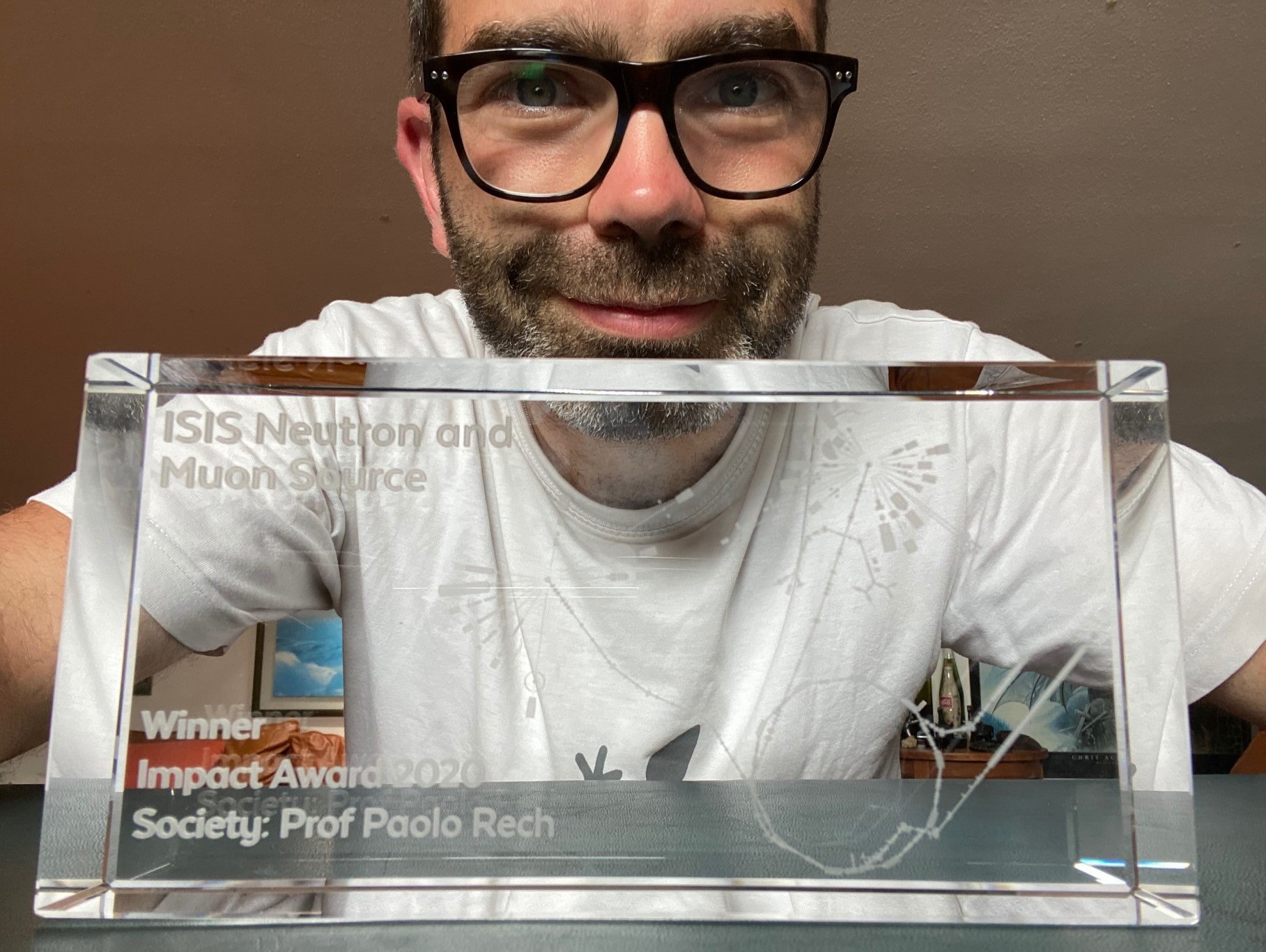After its launch in 2018, the ISIS Impact Awards was again opened to facility users, celebrating the scientific, social and economic impact generated by our user community.
The winner of the Society Award was Paolo Rech, Associate Professor at the Institute of Informatics of the Federal University of Rio Grande do Sul, for his work investigating the effect of neutrons on the computing behind autonomous vehicles, and developing ways to improve its reliability.
Atmospheric neutrons are known to generate faults in computing devices, and these failures are extremely dangerous when the devices are an integral part of a cyber-physical system such as an autonomous vehicle. The detection of objects is the most computationally demanding task for these vehicles, and is the task where the presence of errors causes the majority of accidents.
Until the hardware/software frameworks for object detection are compliant with industry requirements, the full potential of the use of autonomous vehicles in transportation, space and deep sea exploration cannot be realised. It will also take proven reliability for the general public to accept their widespread use.
For a vehicle to detect objects such as pedestrians or other cars, images need to be processed in real-time. This requires cutting-edge hardware computing platforms that Paolo and his research group have found, through experiments on ChipIr, to have a failure rate of hundreds to thousands of times higher than the limit imposed by industry dependability standards.
The traditional solutions to these errors, such as hardware or software replication, are costly and disfavoured by the competitive automotive market. Paolo has worked with advanced devices designed by NVIDIA, AMD, ARM, Intel, and Xilinx using ChipIr to identify the errors that changed the computing behind the vehicle behaviour: the artificial neural networks.
By redesigning the artificial intelligence (AI) software that is used in object detection, Paolo and his group have managed to significantly reduce the probability of incorrect identification and detection. They have introduced a mechanism to compare the decision made from an object detection image with previous and subsequent images, as an equivalent of a “sense check" for the software, at much lower cost than established techniques. Additionally, they have exploit redundant hardware in modern computing systems to run error detection procedures. Testing their AI software on ChipIr, they found a reduction of more than 90% of errors with an overhead lower than 20% (0.01% in the best case).
As well as a long-standing relationship with NVIDIA, Paolo's engagement with ARM, a leading computing devices designer company based in the UK, has led to a collaborative project between them and ChipIr, including a co-funded PhD position.
Besides the automotive industry, their work has also had an impact on the space industry through a collaboration with the European Space Agency and NASA's Jet Propulsion Laboratory in the USA, using ChipIr to investigate the use of autonomous vehicles for space exploration.
Recently, Paolo has extended his studies of the effect of neutrons on electronic equipment by using ALF at ISIS to monitor the effect of thermal neutrons.

Awards and Related Publications
- 2020 Marie Skłodowska-Curie Fellowship from the European Union
- Winner of the 2019 Rosen Scholar Fellowship at the Los Alamos National Laboratory, USA
- “Evaluation and Mitigation of Radiation-Induced Soft Errors in Graphics Processing Units", IEEE Transactions on Computers
- “Analysing and Increasing the Reliability of Convolutional Neural Networks on GPUs", IEEE Transactions on Reliability
- “Selective Hardening for Neural Networks in FPGAs", Transactions on Nuclear Science
- “Evaluation of Histogram of Oriented Gradients Soft Errors Criticality for Automotive Applications", in Transaction on Architecture and Code Optimization
- “Demystifying Soft Error Assessment Strategies on ARM CPUs: Microarchitectural Fault Injection vs. Neutron Beam Experiments", International Conference on Dependable Systems and Networks – Best Paper candidate
- “Reliability Evaluation of Mixed-Precision Architectures", International Symposium on High- Performance Computer Architecture
- “Identifying the Most Reliable Collaborative Workload Distribution in Heterogeneous Devices", Design, Automation & Test in Europe Conference
- “Code-Dependent and Architecture-Dependent Reliability Behaviors", International Conference on Dependable Systems and Networks – Best Paper candidate
- “Evaluation and Mitigation of Soft-Errors in Neural Network-based Object Detection in Three GPU Architectures", presented at Silicon Errors in Logic System Effects – Best Paper
